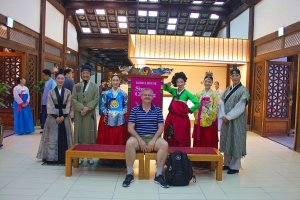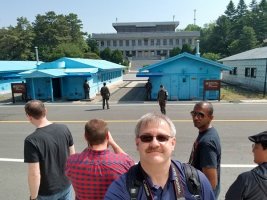The Best things to see and do in Gyeongju - South Korea Purple Travel Guide
Gyeongju can easily be reached from Seoul by train and be explored in one full day. You will need to leave Seoul in the morning, check into your hotel and then start exploring. To see the major highlights, you need to stay over night, and continue exploring the next day. In the late afternoon, you can then continue on to your next destination, e.g. Busan.
In this guide we tell you about the best things to see and do in Gyeongju.
Here at Backpack and Snorkel Travel Guides, we typically promote self-guided walking tours.
But we realize that not everybody likes to walk by themselves in a foreign city. So, just in case that you rather go with ab guide: NO PROBLEM! Please see the free GuruWalk and paid Viator tours below.
Ancient Capital of Gyeongju
Gyeongju was the capital of the kingdom of Silla from 57 BC to 935 AD and Gyeongju was the fourth largest city in the world. Today, Gyeongju has a population of about a quarter million people and a large number of archaeological sites. It is easily reachable by train from Seoul.
Tumuli Park
My hotel was right across the street from Tumuli Park, so this was my first destination. This park has a series of large royal burial mounds and tombs. Sadly, none of the tombs were open when I was there. So, I probably spent about an hour just wandering around.


Cheomseongdae Observatory
This is the oldest observatory in Asia. And, surprise, it is not built on a tall mountain, but on flat land. It consists of 362 stones, one for every day of the lunar year. This is only a 5-10 min stop.

Seokguram Grotto
Seokguram Grotto is yet another UNESCO World Heritage site. It is a hermitage and belongs to the Bulguksa temple complex. Construction of Seokguram Grotto was finished in 774. It is about 2,450ft (750m) above sea level and it overlooks the East Sea. To get there I took a taxi and then a fairly easy path along a tall hill and then enter through a newer building. The grotto is a single room and photography is not permitted, but I was able to find a free-to-use photo on the internet that I am displaying here.


Bulguksa Temple
Possibly the most famous of South Korea's temples, it was originally built in 528 and renovated more than 40 times. The wood structures are rebuilt, but all stone structures and pagodas are original. And, you may have guessed it, it is another one of South Korea's many UNESCO World Heritage sites.
Bulguksa Temple is large, has beautifully restored architecture and is definitely worth visiting.




Where do you want to go now?
Author: Rudy at Backpack and Snorkel
Bio: Owner of Backpack and Snorkel Travel Guides. We create in-depth guides to help you plan unforgettable vacations around the world.
Other popular Purple Travel Guides you may be interested in:
Like this Backpack and Snorkel Purple Travel Guide? Pin these for later:








